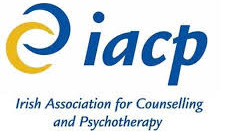Understanding Relationship Issues: More Than Just Arguments
All relationships go through tough times — moments of disconnection, frustration, or conflict. Whether you’re in a long-term partnership, recently moved in together, navigating co-parenting, or simply feeling distant from your partner, relationship issues can surface in many forms.
Arguments, lack of intimacy, emotional withdrawal, or even a sense of “walking on eggshells” are not just signs of incompatibility — they’re often signals that something deeper needs attention.
In the LifeChange Psychotherapy & Counselling practice in Dublin, we see relationship difficulties as an opportunity for growth — not failure. With the right support, communication can improve, trust can be rebuilt, and understanding can deepen.
Why Do Relationship Issues Arise?
There’s no single cause behind relationship struggles. Most often, they come from a mix of emotional, psychological, and circumstantial pressures:
- Poor communication or misunderstandings
- Stress from work, finances, or parenting
- Unresolved personal trauma or emotional baggage
- Differences in emotional needs or attachment styles
- Loss of intimacy or sexual dissatisfaction
- Infidelity, jealousy, or fear of abandonment
- Life transitions — such as having children, moving in together, or retirement
Sometimes, people avoid conflict to keep the peace — only to find that resentment builds over time. Others may argue frequently but never feel truly heard or validated.
These patterns are painful, but they are also workable. Therapy can help couples step back, gain perspective, and move from reaction to reflection.
How Relationship Counselling Helps
Relationship counselling (or couples therapy) provides a safe, neutral space where both partners can speak openly and be heard. At LifeChange, our therapists are trained to hold that space with empathy, structure, and skill.
You don’t need to be in crisis to benefit. Many couples come to therapy simply to reconnect, improve communication, or understand each other better.
In counselling, you’ll explore:
- How you each communicate under stress
- The unspoken expectations or beliefs that shape your dynamic
- Past emotional wounds that are still impacting the present
- Ways to express needs and set boundaries with care
- How to rebuild trust, intimacy, and emotional safety
Rather than assigning blame, therapy focuses on understanding the cycle the couple is caught in — and learning how to shift it together.
Individual Therapy for Relationship Struggles
Relationship issues don’t only arise in couples. You may be single and struggling with patterns in dating. Or you may want to process a breakup, betrayal, or long-term dissatisfaction in past relationships.
Individual therapy can help you explore:
- Why you’re drawn to certain types of partners
- How your childhood or attachment style affects relationships
- Patterns of self-sabotage, avoidance, or over-investment
- How to build healthier, more authentic connections
Whether in or out of a relationship, the way you relate to others is deeply linked to how you relate to yourself. Therapy provides a space to strengthen that core relationship — the one you have with yourself.
Common Myths About Relationship Therapy
- “Therapy means we’ve failed.”
Actually, therapy means you’re investing in the relationship. It’s a sign of courage — not defeat. - “The therapist will take sides.”
A skilled therapist won’t choose a “right” or “wrong” person. They’ll help both partners feel understood and facilitate mutual growth. - “It’s too late to fix things.”
Unless both partners have emotionally left the relationship, it’s never too late to explore what’s still possible.
When to Seek Help
You don’t need a catastrophic event to justify going to therapy. But here are some signs it might be time:
- You feel like roommates, not partners
- There’s constant tension, sarcasm, or withdrawal
- Conflicts never seem to get resolved — they repeat
- One or both of you are considering separation
- There’s been a breach of trust (emotional or physical)
- You’re stuck in silence, resentment, or cycles of blame
Even if your partner is reluctant, you can begin individually. The benefits of your personal insight can ripple through the relationship.






